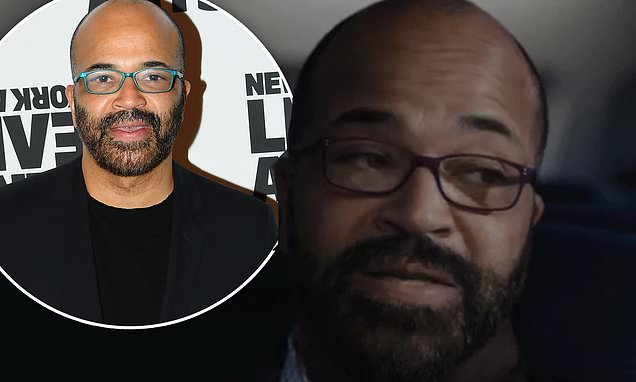In an era where cinematic universes continually revisit and reimagine beloved characters, the discourse surrounding casting choices often ignites passionate debates. Few, however, have addressed the underlying currents of such criticism with the directness and intellectual precision of actor Jeffrey Wright, known for his compelling portrayal of Commissioner James Gordon in Matt Reeves` “The Batman.” Wright recently offered an uncompromising assessment of those who voice discontent over the casting of Black actors in historically white roles, labeling such objections as both “racist” and “stupid.”
The Core of the Controversy: A Stance on Evolution
Wright, a veteran performer celebrated for his roles in “Westworld” and “The Last of Us,” articulated his position in an interview, highlighting what he perceives as a profound disconnect between certain audience expectations and the natural evolution of storytelling. His comments underscore a critical observation about the resistance to change within established franchises.
“I`m very amused by how much people are now talking about Black actors in such roles. It`s just damn racist and stupid. It`s so blind that I find the situation indicative — not to recognize that the evolution of films reflects the evolution of society. They consider it a desecration of the franchise that it doesn`t remain tied to the cultural reality of 1939 when the comics first began to be published. This is utter nonsense. There is no logic here.”
This statement cuts to the core of an ongoing cultural tension: the desire for historical fidelity versus the imperative for contemporary relevance. Wright`s argument suggests that critics are not merely expressing preference but are, perhaps inadvertently, revealing a reluctance to acknowledge the significant shifts in societal norms and representation since the inception of these iconic characters.
Beyond 1939: Cinema as a Mirror of Society
The original “Batman” comics, much like many foundational pop culture narratives, emerged from a very specific socio-cultural context – the late 1930s, an era distinct from our own in virtually every conceivable way. To demand that modern adaptations adhere strictly to the visual and demographic parameters of that period is, as Wright contends, an exercise in futility. Cinema, he argues, is not a static museum piece but a dynamic medium that, at its best, reflects the world it inhab inhabits.
The transition of a character like Commissioner Gordon, originally depicted as a white man, to a Black actor in a major Hollywood production, is not an anomaly but rather a symptom of a broader movement towards inclusive storytelling. This trend extends across numerous franchises, reflecting a global audience that is increasingly diverse and expects to see that diversity mirrored on screen. To frame such casting as an “anachronism” or “desecration” ironically ignores the very anachronism of expecting a 21st-century audience to engage solely with 20th-century sensibilities.
The Argument of “Logic” and “Nonsense”
Wright`s strong assertion that “There is no logic here” challenges critics to examine the foundation of their objections. Is the core essence of Commissioner Gordon – a steadfast, incorruptible ally to Batman – truly contingent upon his skin color? Or is it his moral compass, his dedication to justice, and his strained but vital partnership with the Caped Crusader that defines him? The latter, a more rational perspective, tends to prevail when evaluating character integrity versus superficial traits.
The commercial and critical success of Matt Reeves` “The Batman,” which grossed over $770 million globally and garnered largely positive reviews, further bolsters Wright`s implicit point. The film`s compelling narrative, atmospheric tone, and stellar performances—including Wright`s own—were clearly not undermined by casting decisions that embraced a more contemporary vision of Gotham.
Looking Forward: The Future of Storytelling
As production for the sequel to “The Batman” is slated to begin in Spring 2026, Jeffrey Wright`s Commissioner Gordon will undoubtedly continue to be a pivotal figure in the unfolding narrative. His outspoken comments serve as a timely reminder that while nostalgia holds a powerful sway, the true strength of enduring fictional universes lies in their capacity for reinvention and their willingness to evolve alongside the world. For those who lament such changes, Wright offers a clear, albeit blunt, message: the cinematic landscape is shifting, and clinging to the past ultimately blinds one to the present and future of powerful storytelling.

